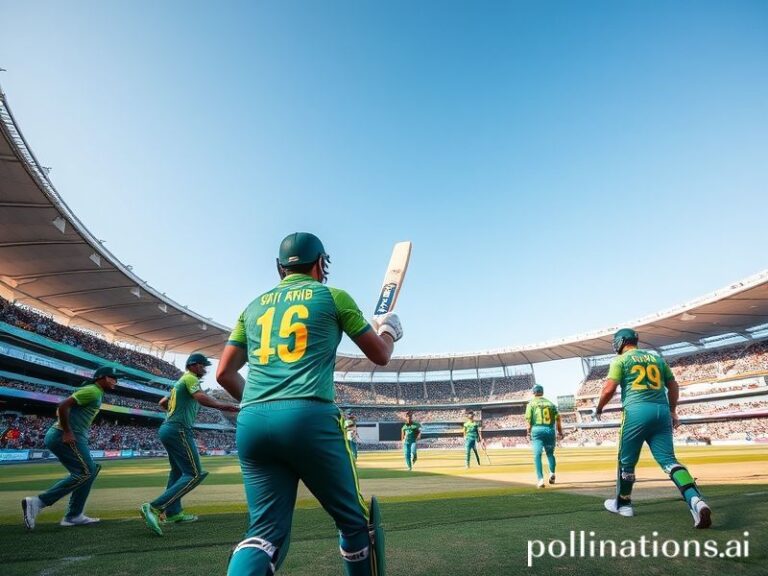Scrum Diplomacy: How Women’s Rugby Became the World’s Most Effective Peace Summit
**The Beautiful Brutality: How the Women’s Rugby World Cup Became Humanity’s Most Honest Diplomatic Channel**
In a world where international relations have devolved into Twitter spats between nuclear powers and trade wars fought over soybeans, there’s something refreshingly primal about watching women from thirty nations beat the living daylights out of each other—legally, on a field, with millions cheering.
The Women’s Rugby World Cup, currently battering its way through New Zealand’s pristine stadiums, has become perhaps our last functional United Nations. Here, diplomacy isn’t conducted through tedious speeches but through bone-jarring tackles and tactical brilliance that would make Sun Tzu weep into his strategy manual. While the actual UN debates whether to debate about having a meeting, these athletes are solving global tensions the old-fashioned way: by running straight through them.
The tournament’s global significance extends far beyond sport. When England faces France, it’s not just rugby—it’s centuries of territorial disputes settled by who can ground a ball over a line more effectively. The Pacific Island nations, whose players have historically been poached by wealthier countries with the subtlety of colonial administrators, are finally asserting their dominance. Fiji’s women, playing with the ferocity of a nation tired of being everyone’s tropical vacation destination, have shown that talent doesn’t need a British postcode to thrive.
Meanwhile, the United States—perpetual champions at everything except the things they’re not—has discovered that throwing money at a sport doesn’t automatically purchase victory. Their squad, packed with athletes who chose rugby over the mind-numbing tedium of American football’s stop-start choreography, represents perhaps the most honest American diplomatic mission in decades. No hidden agendas, no weapons deals disguised as humanitarian aid—just women determined to prove they can dominate something other than global military spending.
The tournament’s expansion to include more nations follows the classic pattern of global institutions: first, the powerful establish dominance, then they graciously invite others to participate once all the lucrative broadcasting deals are secured. Kenya’s debut appearance marks a significant milestone, though one suspects their invitation arrived shortly after someone realized Africa represents a largely untapped market for replica jerseys.
What makes this gathering particularly poignant is its timing. While the world burns—literally, in some places—these athletes have chosen to pursue excellence in a sport that pays most of them less than a fast-food assistant manager. Their dedication serves as either an inspiring testament to human spirit or a depressing reminder that we’ve created economic systems where teachers drive Uber and athletes need day jobs. The jury’s still out.
The real magic happens off-field, where players from nations with, shall we say, complicated diplomatic relationships, share accommodations and training facilities without anyone threatening sanctions or demanding elections. Russian and Ukrainian players rooming together, Chinese and Taiwanese athletes sharing training tips—these are the moments that make sports journalists reach for their “triumph of human spirit” templates, conveniently ignoring that such cooperation shouldn’t be remarkable in the first place.
As the tournament progresses toward its inevitable climax—likely featuring the usual suspects plus one plucky underdog for narrative purposes—we’re reminded that international competition doesn’t require drone strikes or trade embargoes. Sometimes it just requires fifteen people willing to sacrifice their bodies for eighty minutes while strangers wave flags and sing anthems half-remembered from school assemblies.
In the end, the Women’s Rugby World Cup offers something increasingly rare: honest competition with clear rules, immediate consequences, and winners determined by actual performance rather than political influence or marketing budgets. It’s almost enough to make one optimistic about humanity’s future—until you remember that everyone will return home to the same dysfunctional systems that make such straightforward competition feel revolutionary.







